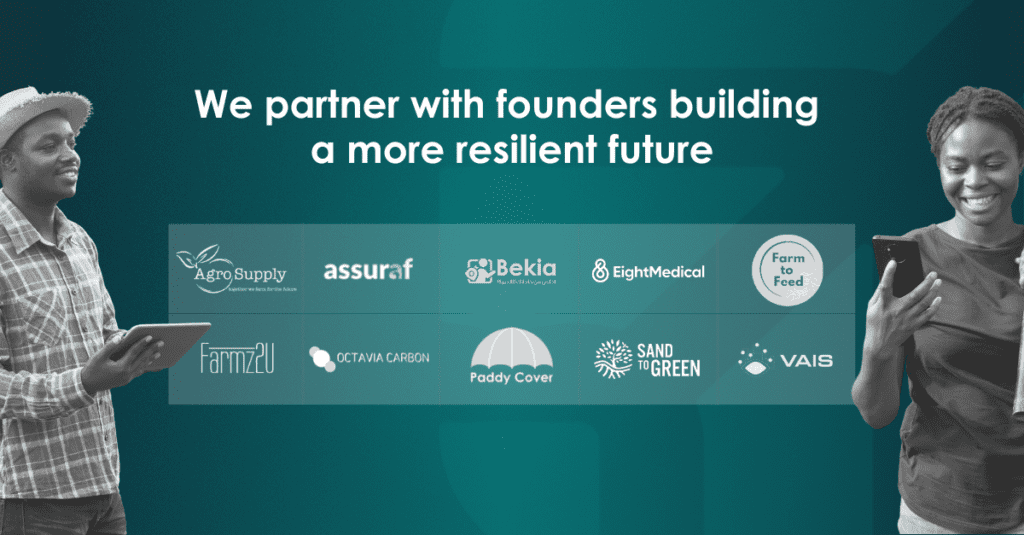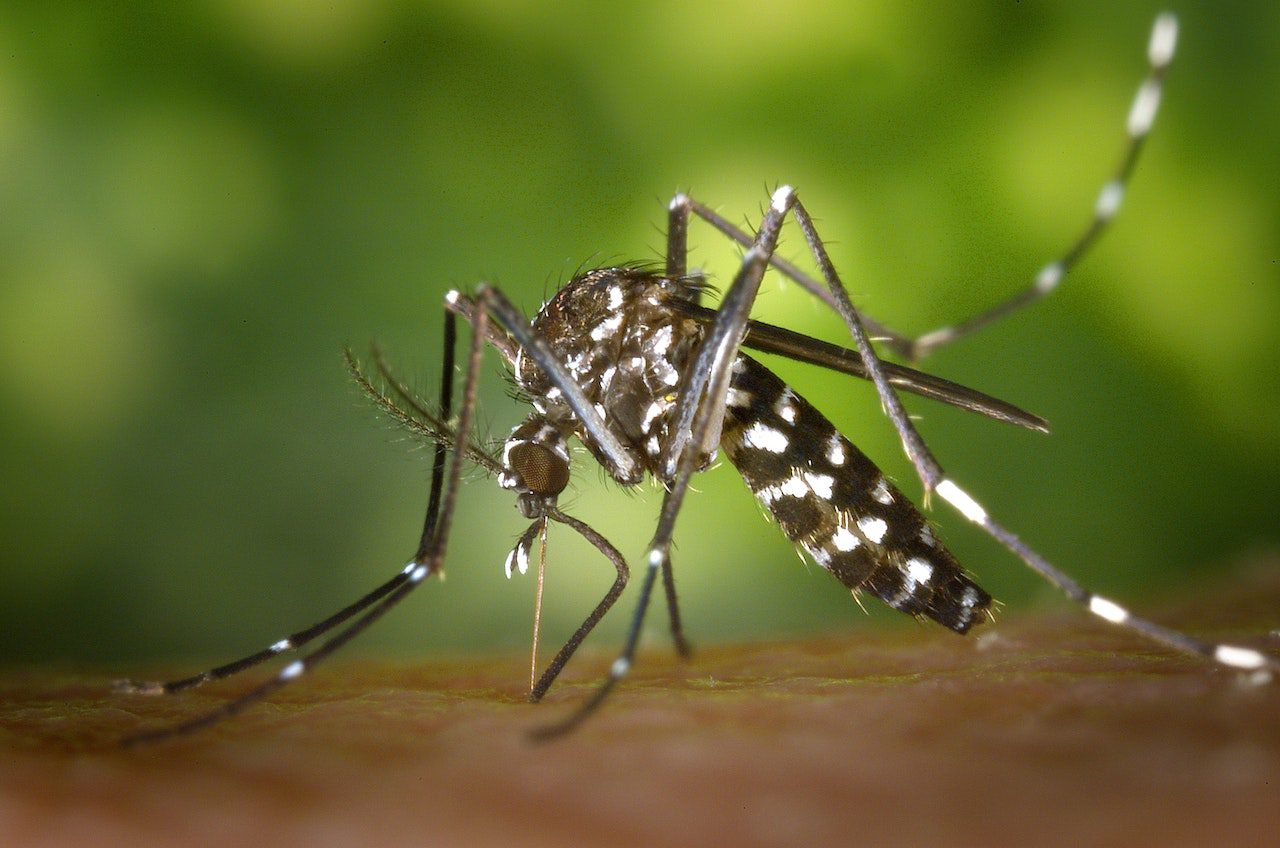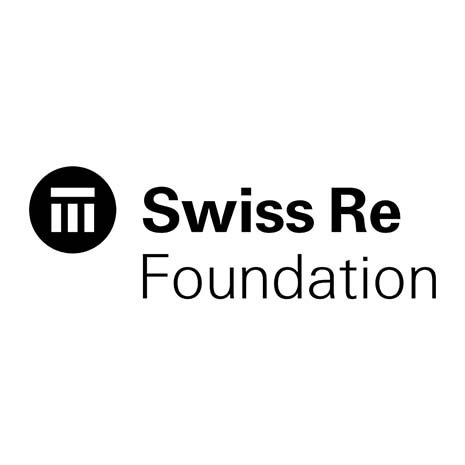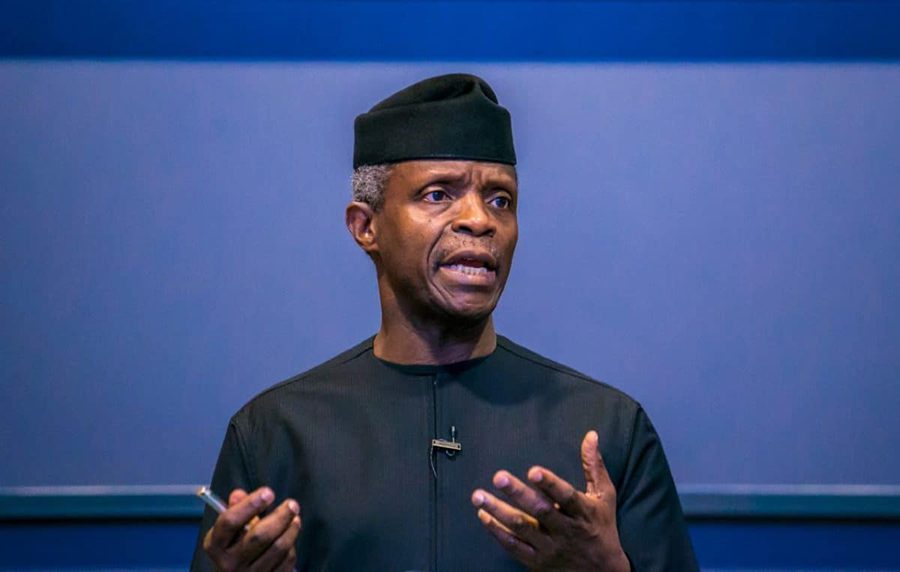Insurtech is key to improving uptake of insurance in Africa. Click to play
Country: Sudan
Catalyst Fund announces a $2 million investment in ten African startups promoting climate resilience
Catalyst Fund recently announced its first investments in ten African startups that are leading the way in areas like agtech, insurtech, waste management, disaster response, and carbon finance. The goal is to help communities adapt to the effects of climate change and build their resilience.
This is the first group of entrepreneurs to get help from its new $30 million pre-seed venture capital fund and accelerator. Its first partner, FSD Africa, is the fund’s leader, and the fund’s goal is to support high-impact entrepreneurs who are working to help underserved, climate-vulnerable communities in Africa become more resilient.
Catalyst Fund’s goal is to help entrepreneurs who use new ideas in technology, finance, and data to solve the biggest problems and take advantage of the biggest opportunities of our time. To do this, it has expanded its mission to include investing in businesses that tackle climate change, which is the biggest problem we all face.
Catalyst Fund already has 61 companies in emerging markets in its portfolio. These new startups will join them and get money, expert-led help building their businesses, and access to a network of investors, corporate innovators, and talented people who can help them grow.
Today pre-seed venture capital (VC) fund and accelerator Catalyst Fund announced a $2 million investment into 10 startups building solutions to improve the resilience of climate-vulnerable communities in Africa.
This is the first group of companies to get money from Catalyst Fund’s new $30 million venture capital fund, which is led by the financial sector development agency FSD Africa. The goal of the fund is to help early-stage founders create technology that will make Africa more resistant to the effects of climate change.
Each of the ten firms will receive $100,000 in equity investments as well as $100,000 in hands-on venture-building assistance.
These companies will join Catalyst Fund’s existing portfolio of 61 startups in emerging markets. They will get funding, specialized and expert-led help building their businesses, and direct connections to investors, corporate innovators, and talent networks that can help them grow.
Catalyst Fund’s Managing Partner, Maelis Carraro, said, “We are thrilled to be able to work with ten innovative African startups to build a more resilient and sustainable future.”
Our goal is to help mission-driven founders who share our vision of a world where everyone has the tools and opportunities they need to thrive. From agtech to insurtech, waste management to disaster response, and carbon finance to carbon finance, these startups show finance, tech, and business model innovations that will help communities better adapt to climate change and become more resilient.
Here are the top ten startups.
Agro Supply (Uganda)
A mobile layaway system that helps farmers save money slowly using their cell phones and cash out to buy farm inputs like hybrid (drought-resistant) seeds, from maize to sorghum, sunflower, and soybean, during planting season.
Assaraf (Senegal)
A digital insurtech platform that gives end users accesses to a variety of insurance products from more than 20 insurance companies, such as insurance for agriculture, cars, health, homes, and natural disasters. It also has a fully integrated claims management system.
Bekia (Egypt)
A technologically advanced waste management solution that enables businesses and households to trade in their waste (including plastic, paper, electronics, metals, and cooking oil) for cash rewards paid to a digital wallet.
Eight Medical (Nigeria)
A cloud-based platform for Emergency Medical Services (EMS) that lets people get urgent care when and where they need it.
This “911 for Africa” puts emergency medical workers on motorcycles in touch with people in trouble in 10 minutes or less, even if the problem is caused by the weather.
Farm to Feed (Kenya)
Afirm n the food supply chain that offers a digitally enabled solution to food loss/waste. Their environmentally friendly strategy focuses on giving farmers a market for their surplus and imperfect produce, improving food security, and lowering greenhouse gas emissions.
Farmz2U (Nigeria + Kenya)
An agtech company promoting sustainable agriculture. Farmers can obtain individualized farming guidance (particularly on regenerative farming practices), reasonable loans, quality and traceable inputs, and direct customers for their harvest through Farmz2U.
Octavia Carbon (Kenya)
Global South’s first Direct Air Capture (DAC) firm is constructing the world’s most affordable DAC hub.
Octavia is building DAC equipment to pull carbon out of the air and sell it to off-takers as either carbon dioxide or carbon credits.
Paddy Cover (Nigeria)
Works with established insurers and digital platforms to create and sell customized products through their platform. These products include health, life, and index-based crop insurance, which will be available in the future.
The services are built into the customer’s life in some way, either as a convenience or as a way to add value.
Sand to Green (Morocco)
Using agroforestry and a solar-powered desalination system, they turn deserts into land that can be used for farming. They also design climate-smart regenerative farms.
VAIS (Egypt)
A precision agtech startup dedicated to climate resilience and food security by giving farms data intelligence through their FarmGATE application, which is powered by proprietary artificial intelligence/machine learning (AI/ML)-based virtual field probing (VFP) technology. This helps farms make better use of water and other farm inputs to get better yields.
Catalyst Fund’s portfolio companies have raised more than US$640 million in follow-on funding so far, and they now serve more than 14 million individuals and MSMEs around the world.
Read original article
Financial Sector Deepening Africa (FSD Africa) will be quantifying changes in credit risk under different nature and climate scenarios for African central banks this year, the Kenya-based development agency’s director of risk, Kelvin Massingham, told Responsible Investor.
Massingham was speaking to RI after FSD Africa was selected to deliver the UK government’s Nature Positive Economy programme, alongside the UNDP’s Biodiversity Finance Initiative (BioFin).
Established in 2012, FSD Africa is a non-profit company funded by the UK’s Department for International Development, which aims to promote financial sector development across sub-Saharan Africa.
The aim of the £7.2m Nature Positive Economy initiative, which was announced at COP15 in Montreal last year, is to support the transition of developing countries to nature-positive economies.
Massingham explained that FSD Africa will collaborate with six unnamed central banks in some of Africa’s largest economies and hopes to build upon work already done by the Dutch and French central banks.
Last year, the non-profit used publicly available central bank data to do nature stress tests for Zambia, Ghana, Kenya, South Africa, Egypt and Mauritius.
FSD Africa will also collaborate with the World Bank and BioFin to create a working group focused on central bank stress testing regarding nature, Massingham said.
In particular, it will centre on sharing learnings across geographies, creating knowledge briefs, and feeding into the work of global coalitions such as the Network for Greening the Financial System (NGFS).
As the group has not yet launched, no banks have formally joined.
FSD Africa also works with other players in the financial sector. It is currently conducting pilots of the Taskforce on Nature Related Disclosures (TNFD) with six entities in the banking and insurance sectors, and will look to increase that to 20 this year.
Massingham said: “During initial piloting of TNFD, when the financial institutions did their assessment, although they of course found nature to be a material risk for their portfolios, they all identified it as a major opportunity.”
Specifically, some banks are apparently looking at the potential for biodiversity bonds.
FSD Africa is also working with financial regulators in Kenya, Nigeria, Ghana and Egypt on how they can signal to their markets that nature-related financial disclosures are coming, in line with the commitment made by signatory countries in Target 15 of the Kunming-Montreal Global Biodiversity Framework.
Read original article
In Summary
- Each of the 10 startups will be offered $100K of equity investments as well as $100K of hands-on venture-building support.
- These ten companies will join Catalyst Fund’s portfolio of 61 startups across emerging markets and receive capital, bespoke and expert-led venture-building support.
The Catalyst Fund has announced a $2 million investment into 10 African startups building solutions to improve the resilience of climate-vulnerable communities in Africa.
The Catalyst Fund is a pre-seed venture capital (VC) fund and accelerator that backs high-impact startups that seek to improve the resilience of underserved, climate-vulnerable communities.
This is the inaugural cohort of the new $30 million VC fund of Catalyst Fund that is anchored by the financial sector development agency, FSD Africa.
It is aimed at supporting early-stage founders to develop technology that will make Africa more resilient to the impacts of climate change.
Catalyst Fund managing partner Maelis Carraro said that they are thrilled to have the opportunity to partner with ten African startups working to build a sustainable future.
“Our goal is to back mission-driven founders that share our vision of a world where every individual has the tools and opportunities they need to thrive,” Carraro said.
“From agritech to insurtech, waste management, disaster response, and carbon finance, these startups display finance, tech, and business model innovations that will help communities better adapt to climate impacts and grow their resilience.”
Each of the 10 startups will be offered $100K of equity investments as well as $100K of hands-on venture-building support.
These ten companies will join Catalyst Fund’s portfolio of 61 startups across emerging markets and receive capital, bespoke and expert-led venture-building support.
They will also receive direct connections with investors, corporate innovators, and talent networks that can help them scale.
The Fund’s portfolio companies have raised more than US$640 million in follow-on funding to date, and currently serve more than 14 million individuals and MSMEs globally.
The ten companies joining this next cohort of Catalyst Fund are Agro Supply (Uganda), Assuraf (Senegal), Bekia (Egypt), Eight Medical (Nigeria), Farm to Feed (Kenya), Farmz2U ( Nigeria, Kenya), Octavia Carbon (Kenya), PaddyCover (Nigeria), Sand to Green Morocco and VAIS (Egypt).
FSD Africa Digital Economy director Juliet Munro said that these companies are strong examples of the innovation needed to enhance the resilience of vulnerable communities across the continent.
“At FSD Africa, we believe that by harnessing the power of tech, and specifically fintech innovation, we can help to spur the development of climate resilience solutions for Africa, thereby helping deliver on COP27’s core themes of adaptation and implementation,” Juliet said.
Catalyst Fund Partner Aaron Fu said that COP27 in Egypt called for more private sector financing to fill the $330B funding gap for adaptation and resilience by 2030.
Aaron also said that it called for more local innovations to support communities in building resilience to climate impacts.
“The Catalyst Fund’s new cohort exemplifies what these innovative climate solutions for the most vulnerable could look like,” he added.
He also said that they are also thrilled to be backing companies in Francophone Africa and Northern Africa for the first time.
Catalyst Fund intends to back many more startups like them across the African continent in the years to come.
Read original article
NAIROBI, Kenya, 10 January 2023 -/African Media Agency(AMA)/- Today pre-seed venture capital (VC) fund and accelerator Catalyst Fund announced a $2 million investment into 10 startups building solutions to improve the resilience of climate-vulnerable communities in Africa. This is the inaugural cohort of the new $30M VC fund of Catalyst Fund, anchored by financial sector development agency FSD Africa, aimed at supporting early-stage founders to develop technology that will make Africa more resilient to the impacts of climate change.
Each of the 10 startups will be offered $100K of equity investments as well as $100K of hands-on venture-building support.
These companies will join Catalyst Fund’s existing portfolio of 61 startups across emerging markets and receive capital, bespoke and expert-led venture-building support, and direct connections with investors, corporate innovators and talent networks that can help them scale. Catalyst Fund’s portfolio companies have raised over US$640 million in follow-on funding to date, and currently serve more than 14 million individuals and MSMEs globally.
“We are thrilled to have the opportunity to partner with ten groundbreaking African startups working to build a more resilient and sustainable future,” said Maelis Carraro, Managing Partner of Catalyst Fund. “Our goal is to back mission-driven founders that share our vision of a world where every individual has the tools and opportunities they need to thrive. From agtech to insurtech, waste management, disaster response, and carbon finance, these startups display finance, tech, and business model innovations that will help communities better adapt to climate impacts and grow their resilience.”
The ten companies joining this next cohort of Catalyst Fund are:
Agro Supply [Uganda]: a mobile layaway system that helps farmers save money gradually using their mobile phones and to cash out in order to purchase farm inputs such as hybrid (drought-resistant) seeds, from maize to sorghum, sunflower and soybean during the planting season.
Assuraf [Senegal]: a digital insurtech platform offering end-users access to a range of insurance products (e.g. agriculture, automotive, health, housing, natural disasters) from over 20+ insurance companies with a fully integrated claims management system.
Bekia [Egypt]: a tech-enabled waste collection solution enabling companies and households to exchange their waste (plastic, paper, electronics, metals, cooking oil) against a financial incentive paid on a digital wallet.
Eight Medical [Nigeria]: a cloud-native Emergency Medical Services (EMS) platform that provides on-demand urgent care when and where it is needed. This “911 for Africa” connects emergency medical responders on motorcycles to users in distress in 10 minutes or less, including for climate-induced crises.
Farm to Feed [Kenya]: a food supply chain company that is providing a digitally-enabled solution to food loss/waste. Their climate-smart solution focuses on providing a market for imperfect and surplus produce from farmers, contributing to food security and greenhouse gas emissions reduction.
Farmz2U [Nigeria, Kenya]: an agtech enterprise driving sustainable agriculture. Through Farmz2U, farmers can access personalized farming advice (especially on regenerative farming practices), affordable credit, quality and traceable inputs, and direct buyers for their harvest.
Octavia Carbon [Kenya]: the Global South’s first Direct Air Capture (DAC) company that is building the world’s lowest-cost DAC hub. Octavia is currently building DAC machinery to capture carbon from the air for resale as either carbon dioxide or carbon credits to off-takers.
PaddyCover [Nigeria]: works with established insurers and digital platforms to design and offer bespoke products via their platform that facilitates flexible insurance packages, including health, life and, in the future, index-based crop insurance. The offerings are built into the lifestyle touchpoints of the customer, either as a convenience or as complementary value-adds.
Sand to Green [Morocco]: transforms deserts into cultivable land using agroforestry methodology and a solar-powered desalination system to design climate-smart regenerative farms.
VAIS [Egypt]: a precision agtech startup committed to climate resilience and food security by providing data intelligence to farms via their FarmGATE application, which is powered by proprietary artificial intelligence/machine learning (AI/ML)-based virtual field probing (VFP) technology, to enable better use of water and other farm inputs to produce better yields.
“At FSD Africa, we believe that by harnessing the power of tech, and specifically fintech innovation, we can help to spur the development of climate resilience solutions for Africa, thereby helping deliver on COP27’s core themes of adaptation and implementation,” said Juliet Munro, Director of Digital Economy at FSD Africa. “These companies are strong examples of the innovation we need to enhance the resilience of vulnerable communities in across the continent.”
“COP27 in Egypt this year called for more private sector financing to fill the >$330B funding gap for adaptation and resilience by 2030. It also called for more local innovations to support communities in building resilience to climate impacts. The Catalyst Fund’s new cohort exemplifies what these innovative climate solutions for the most vulnerable could look like. We are also thrilled to be backing companies in Francophone Africa and Northern Africa for the first time. We intend to back many more startups like them across the African continent in the years to come,” said Aaron Fu, Partner at Catalyst Fund.
Distributed by African Media Agency (AMA) on behalf of Catalyst Fund
About the Catalyst Fund
The Catalyst Fund is a pre-seed VC fund and accelerator backing high-impact tech startups that seek to improve the resilience of underserved, climate-vulnerable communities. We partner with mission-driven founders that share our vision of a world where every individual has the tools and opportunities they need to thrive.
Read original article
Washington, DC, Dec. 14, 2022 (GLOBE NEWSWIRE) — The Health Finance Coalition (HFC), powered by Malaria No More, and AfricInvest today announced pledged commitments of $50 million for the pan-African Transform Health Fund, to finance the scaling of proven, innovative models that improve access, affordability, resilience, and quality of healthcare in Africa. U.S. International Development Finance Corporation (DFC), U.S. Agency for International Development (USAID), Royal Philips, Merck & Co., Inc., known as MSD outside of the United States and Canada, FSD Africa Investments, Netri Foundation, Anesvad Foundation, Grand Challenges Canada (with funding from Global Affairs Canada), Chemonics International, and MCJ Amelior Foundation have all announced their commitments, subject to final due diligence before closing. IFC is in the advanced stage of approving its investment in the fund.
The announcement was made as part of the U.S.-Africa Leaders Summit in Washington, D.C. hosted by President Biden. The Transform Health Fund is an innovative blended-finance fund focused on locally led health supply chain, care delivery, and digital solutions in Africa. The fund is a collaborative effort bringing together commercial, government, and donor investments under the leadership of AfricInvest, a leading pan-African investment platform active across private equity, venture capital and private debt, and the Health Finance Coalition, a group of leading global health funders hosted by Malaria No More, to finance enterprises that improve health system resilience and pandemic preparedness across the continent.
The Transform Health Fund will provide debt and mezzanine financing to scale high-impact health enterprises serving vulnerable communities, while offering risk adjusted returns. As a result, the Fund is expected to help bolster healthcare systems in Africa, which face a massive financing gap – a challenge made more difficult by COVID-19 – by working to achieve Universal Health Coverage (UHC).
The Challenge: Africa Faces a Massive Health Financing Gap
While Africa is home to 16 percent of the global population and 23 percent of global disease burden, just 1.6 percent of annual impact investments – now estimated at a market size of $1.16 trillion – target the healthcare sector in Sub-Saharan Africa. Small and medium enterprises (SMEs) are generally left out of this impact investment and the COVID-19 pandemic has made this gap even wider.
The Opportunity: Innovative Financing to Support African Healthcare
To respond to the critical healthcare financing gap in Africa while building a resilient ecosystem, the Transform Health Fund will target three critical areas serving low-income patients: supply chain transformation, innovative care delivery, and digital innovation. The Transform Health Fund investments will target countries across sub-Saharan Africa, with a focus on East, Southern, and Francophone West Africa.
“Three decades of expertise and insight allows AfricInvest to leverage a wide range of support throughout many regions of the continent,” said Ziad Oueslati, Founding Partner, AfricInvest. “We believe our team is well-positioned to continue financing African health-sector companies through innovative financing models such as the Transform Health Fund.”
“The Transform Health Fund will demonstrate that health enterprises serving the most vulnerable communities are investible,” said Martin Edlund, CEO, Malaria No More and Executive Director of the Health Finance Coalition. “To solve the health financing gap in Africa, we need to crowd in substantial private investment – this fund demonstrates a new model for achieving that while prioritizing transformative health impact.”
“Scaling proven solutions in Africa’s healthcare requires adequate investment and innovative financing,” said Noorin Mawani, Co-lead of the Transform Health Fund. “The Transform Health Fund seeks to apportion risk and return while delivering high impact-focused funding to healthcare businesses that need it most.”
“The Transform Health Fund demonstrates what’s possible when you combine a ‘capital stack’ approach to financing with a genuine commitment to transformational impact,” said Ray Chambers, WHO Ambassador for Global Strategy and Health Financing. “But to achieve the world’s ambitious global health goals, we need to urgently scale such efforts – especially as the world recovers from COVID-19 and faces serious macroeconomic headwinds.”
“Working together, we can build a stronger and more resilient healthcare system in Africa by strengthening regional supply chains, delivering care to underserved communities and leveraging the digital economy to provide innovative healthcare solutions,” said Makhtar Diop, Managing Director of IFC. “The rapid pace of innovation witnessed in the health sector provides an opportunity to leapfrog and we look forward to our collaboration with the Transform Health Fund to finance Africa’s health transformation.”
“Since our company’s founding, we have been committed to advancing global health and using the power of science to save and improve lives,” said Robert M. Davis, CEO and Chairman, Merck & Co., Inc. “Creative financing models like the Transform Health Fund can be effective tools to help enable greater access to health, and we welcome the opportunity to partner with like-minded organizations focused on strengthening health systems around the world.”
“DFC is proud to be one of the first supporters of Transform Health Fund whose mission is to invest to strengthen healthcare systems and supply chains across Africa,” said Lauren Cochran, Vice President of Equity and Investment Funds, U.S. International Development Finance Corporation (DFC). “This commitment is an important example of DFC’s work to expand access to quality healthcare services, build the private sector, and empower local communities.”
“As part of our ambition to improve the lives of 2.5 billion people per year by 2030 and in particular the health and well-being of 400 million people in underserved communities, we recognize the important role businesses can and need to play in unlocking financing for Universal Healthcare in Africa,” said Marnix van Ginneken, Philips’ Chief ESG & Legal Officer. “The Fund’s innovative model positions private capital to co-invest and provide impact capital to innovative healthcare delivery models, including digital transformation which is essential to bridging the gap to underserved communities and increasing access to quality and affordable care.”
“We have seen from our work throughout Africa that transformative change happens when local leaders, innovators, and entrepreneurs have the resources, networks, and capital to bring their ideas and solutions to scale,” said Jamey Butcher, President and CEO, Chemonics International. “Chemonics is proud to support the Transform Health Fund, an investment vehicle that will do just that for healthcare in Africa.”
“We are delighted to partner with AfricInvest and The Health Finance Coalition in establishing an investment vehicle that has secured much needed private flows of finance for African healthcare,” said Anne Marie Chidzero, Chief Investment Officer, FSD Africa Investments. “The fund will back an emerging class of private health provision that will improve livelihoods for vulnerable populations. The future of health finance lies in bringing together different types of capital with a common purpose, something we are excited to back through our investment in the Transform Health Fund.”
Read original article
This report is intended to assist the Norwegian Refugee Council (NRC) and other humanitarian actors to leverage digital payment systems such as mobile money in their humanitarian cash transfers. FSD Africa commissioned Strategic Impact Advisors (SIA) to examine the challenges and opportunities of providing digital financial services (DFS) in Sudan, particularly to displaced populations and lowincome segments. SIA also leveraged the Connectivity Usage and Needs Assessment (CoNUA) data by GSMA to conduct additional analysis on beneficiary digital readiness, and assess the key challenges stopping them from either accessing or using their mobile devices in more diverse and confident ways.
Overall, this exercise aimed to improve cash assistance programs in Sudan and to provide guidance on improving access to DFS. Based on the analysis of the key barriers for both the supply and demand side, SIA came up with recommendations for how the humanitarian sector can help improve access to financial services and strengthen the underlying digital payments infrastructure.
Supply Side Recommendations
Provide Evidence of Revenue Potential
When humanitarian organizations engage the private sector, they can provide projected transfer numbers in more detail to help financial service providers (FSPs) calculate revenue potential. Providing FSPs with a clear roadmap of the number of households, including the values and frequency that cash is disbursed, can help providers get a clearer picture of the potential. Humanitarian organizations can also provide some of the analysis done on different segments to help providers think about which beneficiaries might be more likely to use the products and services beyond simply cashing out. Based on cash volume, value, and frequency projections provided by the Sudan Cash Working Group (CWG), SIA developed a high-level revenue potential analysis (Annex C) to help service providers assess the market opportunity for delivering digital cash transfers.
Support MNOs in Overcoming Airtime Credit Transfers
Cash-in/cash-out agents are a crucial part of any digital financial service, and the primary physical points of service for mobile money are currently nonexistent. Airtime resellers for mobile network operators (MNOs) are not being incentivized to consider mobile money as they are making high commissions off of airtime credit transfers, which is essentially using airtime to send funds that airtime resellers then turn into cash for a price. Humanitarian organizations can support the transition away from these more informal services by providing information on the frequency and value of transfers (demand) in a certain area to allow formal FSPs to help potential agents understand how much they could be making compared to the credit transfers they are conducting now via formal DFS (i.e. mobile money). Humanitarian organizations should support fintechs and other initiatives that are attempting to build out agent networks. Shared agent networks like Alsough are interoperable, meaning they provide a point of service where customers can access services regardless of their FSP (bank or mobile money), and provide choices among beneficiaries, allowing them to select the provider that offers the product that is the best fit for them.
Support in Bolstering the Access and Usage of ID
The Commission of Refugees (COR) identity document (refugee ID card) is not recognized as a know your customer (KYC) document within the governing KYC/customer due diligence (CDD) regulation or by most financial institutions; however, in 2019 the Central Bank of Sudan issued a decree stating that the refugee ID card is a KYC document, but banks have been slow to offer services to this segment and have yet to adapt their procedures to accept it. Humanitarian organizations can play an advocacy role in getting regulators to issue more clear guidance on refugee access to mobile money wallets. Among internally displaced persons (IDPs) and host communities, humanitarian organizations can educate beneficiaries about the benefits of having access to an ID that enables them to register for DFS.
Demand Side Recommendations
Expanding Digital Capability, With a Focus on Women
Across all segments, women were less confident in using a mobile phone or using the mobile internet. Building digital capabilities among beneficiaries, with a focus on women, can start to reduce this barrier. Humanitarian actors could begin considering how to integrate elements of digital capability training into their interactions with beneficiaries. Having greater digital capabilities and knowing which activities consume more data can also help improve smartphone users’ management and use of data, helping reduce costs.
Driving Down Costs of Handsets
Cost of handsets was the most popular barrier across all segments in White Nile and West Darfur. While the cost of mobile phones, particularly smartphones, is declining, cost is a major barrier for accessing and using a mobile phone. Humanitarian organizations could consider partnerships with MNOs to subsidize basic and smartphones for interested beneficiaries.
Awareness of Limited Network Coverage
Another barrier often cited was a lack of network coverage, particularly for the use of the mobile internet. Expanding network coverage is likely out of the scope of humanitarian organizations, but field staff could collect data on signal strength when making field visits and provide this feedback to MNOs. This information could be used to inform whether pushing for digital payments in certain areas is premature, as network coverage is weak. While it is highly unlikely humanitarian organizations can influence greater investment in network infrastructure in certain areas, they can provide information on weak network areas and help to make data driven decisions on where digital payments may be harder to achieve.
The Swiss Re Foundation has announced a US$500,000 grant to spur innovation of insurance products for the underserved communities in Africa in the wake of rising risks.
Report noted that the funding, which will be distributed through FSD Africa’s supported BimaLab insurance accelerator programme, will help promising insurtechs to introduce and scale up innovative products targeting low-income groups, currently left out by existing insurance products.
“We acknowledge the role of the insurance sector in spurring the growth and development of the African continent. Through programmes such as BimaLab, the most vulnerable and low-income people will gain from the innovative, affordable and efficient insurance products and services,” said Stefan Huber Fux, director of Swiss Re Foundation.
The programme will help turn validated insurance-focused ideas to market and investor-ready and provide innovators with enabling regulatory environment for developing their ideas, according to the brief by the Foundation.
The foundation, started by Swiss Re in October 2011 to, among other goals, support innovations that boost societal resilience, had issued grants in 44 countries by 2021 and made $86.6m commitments between 2012 and 2021.
The Swiss Re Foundation grant will help define a path for scaling the BimaLab from three to ten countries, thereby allowing a deeper dive and creating a mechanism for continued technical support and funding.
Read original article
Nigeria’s Vice President, Prof. Yemi Osinbajo, said Africa’s share of the global carbon market can be scaled up massively to reach foreign direct investment (FDI) of between $120 to $200 billion annually.
The Vice President stated this during his keynote speech at the Rockefeller Foundation meeting in New York.
He identified a combination of capital flows, job creation, and the avoidance of long-term climate destruction as critical drivers of African leaders’ interest in supporting this effort.
According to him, Africa currently has only a small share of the carbon market. He explained the importance of this projected carbon finance stream, saying:
“For a continent that needs $240 billion annually in mitigation investment alone, this carbon finance stream could be the difference between transitioning and not (transitioning). As all of us in this room understand well, the priorities of the African continent are not just to act decisively on the climate crisis, but to also create significant growth opportunities for our young and growing population.”
“The investment required to advance the energy transition in Africa is huge. World Bank estimates suggest that Africa needs $6.5 trillion US dollars between now and 2050 for mitigation action alone to keep temperatures below 2 degrees of warming.”
VP Osinbajo also highlighted that the carbon market pipeline could create 30 million jobs in the next decade, with the potential to create more than 100 million jobs through climate-aligned projects by 2050.
Africa’s carbon markets: During his speech, VP Osinbajo noted that the rapid progress recorded in Africa benefitted from the support of a very engaged Steering Committee with the United Nations, Global Energy Alliance for People and Planet (GEAPP), USAID, and a range of other public and private actors, which resulted in the successful launch of the African Carbon Markets initiative (ACMI) in Sharm-el-Sheikh, Egypt during the COP-27 event.
“The strong commitment and presence from fellow African leaders demonstrate the willingness and leadership of Africa. We already have 7 African countries (Burundi, Gabon, Kenya, Malawi, Mozambique, Nigeria, and Togo) signed up to develop country carbon activation plans and over $200 million in advanced market commitments, which we must continue to further advance as this is going to be the critical driver of action on the continent.”
“I think it’s an auspicious moment for Africa to be participating more fully in the global carbon market conversation, especially in the light of the slowing pace of green investment flows into the continent. The work several of us have done together in the past few months makes it clear that while other sources of flows are slowing down globally, carbon markets are growing rapidly,” Osinbajo said.
Advancing carbon markets: VP Osinbajo also spoke about the essence of collaborations in developing carbon markets on the continent. He said collaboration is a key to unlocking opportunities in Africa’s carbon markets. He said:
“One of the strong points of ACMI and the way we must structure it going forward, in terms of governance, is the flexibility to smoothly work with other initiatives, and there will be many others. Two days before the opening of Cop 27, Senator John Kerry and I had a conversation about the proposed Energy Transition Accelerator and we both agreed that once the details were worked out, we would work out a collaborative framework with ACMI.
“Carbon markets will play a critical role in the implementation of this (Energy Transition) Plan – in mobilizing the capital required to move to our net-zero economy-wide trajectory. I want Nigeria to have the first Carbon Markets Activation Plan.”
In his contribution, the US Presidential Envoy on Climate Change, Senator John Kerry, commended VP Osinbajo for his leadership on the issue of energy transition. Kerry said:
“We are grateful for the leadership of the VP, grateful for the reception you gave me on my visit to Nigeria. I am honoured to share the platform with you on how to move the African Carbon Market Initiative (ACMI) forward.
“It is possible to create a high-integrity carbon market in a way to address Climate Change and African Development aspirations. We are all joined together looking forward to developing the financing.”
In case you missed it: The ACMI is a new initiative that was launched during the conference of parties (COP 27) event held in Egypt. The ACMI will be led by a fourteen-member steering committee of African leaders, CEOs, and carbon credit experts. The ACMI aims to dramatically expand Africa’s participation in voluntary carbon markets.
Read original article








